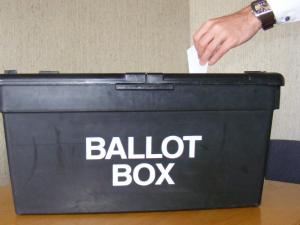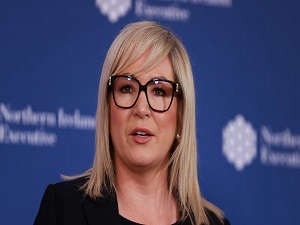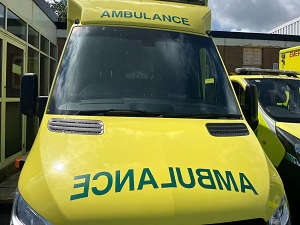
ELECTION COVERAGE
Voters go to the polls in Northern Ireland today for the second time in less than a year.
Power-sharing arrangements at the Stormont Assembly collapsed in January.
If a new government cannot be formed post election then direct rule from London is on the cards.
Former Deputy First Minister, Martin McGuinness blamed the fallout of a botched green energy scheme and a host of other issues for collapsing the executive.
It paid grants to businesses worth more than the cost of running wood biomass boilers.
The more companies burned, the more they earned turning the term 'Cash for Ash'.
Former first minister Peter Robinson has warned politicians to step back and avert a headlong rush towards the destruction of devolved government.
While the vote will not change how Theresa May's Government treats talks to leave the European Union, the border between Northern Ireland and the Republic of Ireland could become an issue in how Brexit is introduced.
Five Assembly seats are up for grabs in 18 constituencies, with the overall number returned falling from 108 to 90.
A total of 228 candidates are running.
That forced the dissolution of the institutions, which need nationalists and unionists in government to operate, and Northern Ireland Secretary James Brokenshire called a snap election.
The next ballot had been due to take place in May 2021 after a poll last May.
Northern Ireland uses the single transferable vote proportional representation electoral system.
Counting will start during daytime on Friday with the last results not expected until later on Saturday.
All the main Stormont parties reduced the number of candidates fielded, in line with the downsized Assembly.
The largest party, the DUP, is running 38 - six fewer than last year.
Sinn Fein dropped five, from 39 to 34.
The UUP has 24 candidates - two fewer than in 2016 - while the SDLP is down three on 21.
The Alliance Party nominated 21 Assembly hopefuls, down two.


 Badenoch demands prosecution of rap group Kneecap over ‘dead Tory’ claim
Badenoch demands prosecution of rap group Kneecap over ‘dead Tory’ claim
 Tulip Festival Returns to Glenarm Castle with Northern Ireland’s First-Ever Squishmallows Experience
Tulip Festival Returns to Glenarm Castle with Northern Ireland’s First-Ever Squishmallows Experience
 O’Neill praises Pope’s commitment to peace as she confirms funeral attendance
O’Neill praises Pope’s commitment to peace as she confirms funeral attendance
 Woman suffers ‘traumatic ordeal’ in roadside robbery in Newry
Woman suffers ‘traumatic ordeal’ in roadside robbery in Newry
 Shock over record number of attacks on ambulance crew
Shock over record number of attacks on ambulance crew